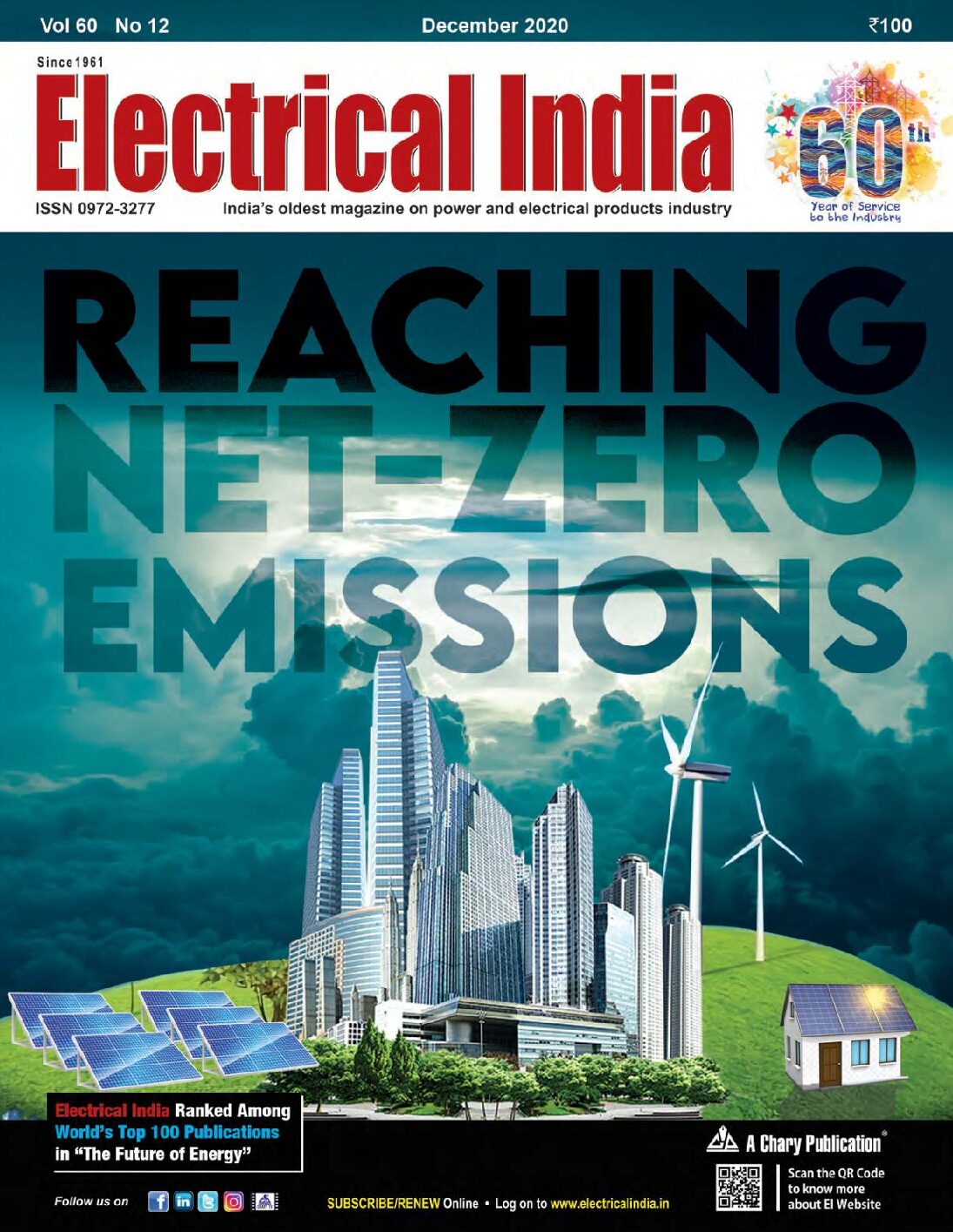
Dr Joshipura, first of all, let me congratulate you on behalf of readers of Electrical India on receiving the prestigious Deming Prize. Could you let us know more about this achievement?
Thank you. I accept your congratulations on behalf of the switchgear and design & development team because it is an award bestowed on them. For L&T’s electrical & automation business, the award is an important recognition of the fact that it is a business which has been able to sustain leadership and compete against three global players. There are not too many parallels where a local player in a tech-driven business has been able to withstand and retain leadership in the context encompassing essentially global competition. Additionally, in the 70-year legacy of the Deming award, this is the first switchgear business outside of Japan to have been so awarded. This validates the resilience of L&T’s electrical business.


Mr Tiwari, could you tell us about the Deming Prize, the weight and importance given to achieving the prize, what’s special for L&T Electrical & Automation…
William Edwards Deming was an American engineer, statistician, professor, author, lecturer, and a management consultant. During the 1950s, he visited Japan and as a result, he made a serious attempt to improve the quality of products being used within the industry. Deming then guided them on how best they can improve the quality of products. Initially, it was only companies from Japan that won the Deming prize. Participation for the prize was gradually extended to other companies. Suppliers today need to be cost-effective, efficient and they need to keep an eye on quality. Nowadays, we see a trend where people are reaching a level of excellence. There is a word called TQM – that implies Total Quality Management. In the year 1998, we began to send people to Japan, and in the year 2000, we had Japanese sensei (gurus) visiting us to teach more about how we could improve our quality system. It has been an eight-year journey since we have adopted Japanese TQM model.
What are the parameters for the Deming prize?
Tiwari: Organised by the Union of Japanese Scientists & Engineers’ (known as JUSE), the Deming Prize is an annual award presented to an organisation that has established suitable customer-oriented business objectives and implemented TQM effectively to achieve business results.
In the last 8 years, what is the percentage of efficiency you have achieved?
Tiwari: Talking about machines: we were in the range of 85 per cent to 90 per cent and now quite a few machines are in the range of 90 per cent to 95 per cent OEE (Overall Equipment Effectiveness). OEE has three factors – availability, quality and performance. For Tools and Moulds, our breakdown expenses have reduced to one-third of what they were. On Service Levels, Line Fill rate near 97 per cent and complaint response time has become
one-fourth of what it was.
In this process, was there pressure on employees in terms of deliverables?
Tiwari: Not at all! Employees have found that TQM is helping them learn new things and thus improving their ability. Adoption of TQM approach is helping them efficiently and effectively meet objectives and deliver results that contribute to achieving business goals. Both, ESP and NPD are known for systematic and team working which are also amongst things that the TQM philosophy emphasises upon. In fact, our “involvement of all” approach and
“CFT based working” was especially applauded by the examiners.

What is the percentage of the cost reduction you have achieved so
far?
Tiwari: We have a practice of targeting a certain percentage of product cost reduction every year. This is based on inflation as projected and the budgeting estimate of various commodities. We have been able to come very close to the target due to cross-functional working and regular reviews, supplier involvement and deployment of innovative processes, value engineering and modified supply chain.
What is the status of Schneider Electric deal? Tell us know more about this deal like economics, assets, timeframe etc.
Joshipura: The business transfer agreement was signed on 1st May 2018 and the next milestone was clearance by the Competition Commission which came in June 2019. We are in the process of consummating the transfer of the business.
ELECRAMA 2020 is around the corner. How is the preparation going on as far as L&T is concerned?
Joshipura: We are getting ready for our exhibits at ELECRAMA 2020. We always use ELECRAMA as a platform to showcase our new product innovations. This time too, we have a number of them across our business whether it is switchgear, meters, agri business or retail business. You will see all of that at ELECRAMA.
(To watch the complete interview, kindly subscribe and like Chary TV. Complete video here: https://www.youtube.com/watch?v=8Rd7Sg6E3AI)














